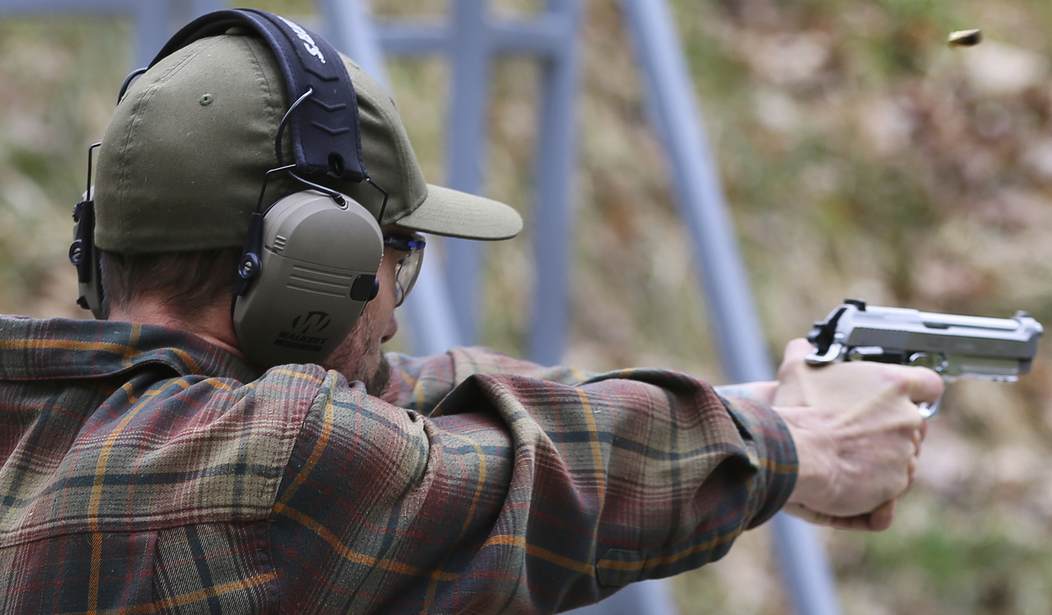Supporters say a bill that’s drawn bipartisan backing in the Georgia legislature would expand the opportunities for residents to get mental health treatment, but critics are worried that the measure could also make it easier to strip Georgians of their Second Amendment rights.
As the Atlanta Journal-Constitution reports, HB 1013 has been broadly supported for much of this year’s session, but in recent weeks several groups have come out in opposition of the bill, alleging that the language within would protect child predators as well as eroding the state’s civil commitment law, which could greatly expand the number of gun owners adjudicated as “mental defective”, which prohibits them from legally owning a firearm.
HB 1013 would enforce a federal “parity” law by requiring insurance companies to cover mental health care the same way they cover physical health, establish state grants for outpatient treatment, loosen the guidance on when law enforcement can involuntarily commit someone in need of help and take other steps to improve care.
Georgia ranks low nationally on most measurements of mental health treatment and high in the percentage of residents who face challenges, according to a 2021 report by Mental Health America, a century-old nonprofit advocacy group. It put Georgia last for the number of mental health professionals per capita. The American Academy of Child and Adolescent Psychiatry says Georgia has only eight psychiatrists per 100,000 children; the academy suggests a better ratio is 47 per 100,000.
… “I’m a supporter of the Second Amendment,” Grant Meadows said during a hearing this week. “In other states we’ve seen mental health laws turn into red flag laws. And it can be done arbitrarily.”
Typically, “red flag” laws would allow a judge to deem that someone is a threat and unable to have guns.
Red flag laws, or Extreme Risk Protection Orders, are not about mental health. In fact, the vast majority of red flag laws on the books do not require any evaluation by a mental health professional before a judge can deem someone a threat to themselves or others and order their guns “temporarily” taken from them.
Civil commitments, on the other hand, do involve an evaluation by medical professionals, but an adjudication of mental illness results in an outright cancellation of the individual’s Second Amendment rights. The concerns of folks like Grant Meadows is that by expanding civil commitments to also include outpatient treatment in addition to the current requirement for inpatient treatment, many more Georgians may find themselves involuntarily “committed” to the state’s mental health system and lose access to their 2A rights even if their “commitment” consists of outpatient therapy.
I’ve written before about the mental health crisis in this country, so I’m not opposed in the slightest to the state of Georgia trying to expand the availability of mental health services for those who need them. I’m very troubled, on the other hand, with anything that waters down the state’s current safeguards for gun owners. If someone is truly such a danger to themselves or others that they can’t be allowed around a firearm, why should they have access to knives, pills, gasoline, matches, or anything else they could wield as a weapon?
I’d prefer to see Georgia work to expand both the number of mental health professionals operating in the state as well as the number of inpatient beds available for those individuals in the grips of a mental health crisis, rather than establish an outpatient civil commitment process. That’s far more expensive, however, than trying to refer more individuals to outpatient therapy, and this bill is already expected to cost nearly $30-million per year to implement.
But does HB 1013, at least as it’s written, really pose the threat to 2A rights that its critics claim?
Under federal law, those “committed to a mental institution” are considered to be “mentally defective” with no Second Amendment rights. Federal law offers further details:
“A formal commitment of a person to a mental institution by a court, board, commission, or other lawful authority. The term includes a commitment to a mental institution involuntarily. The term includes commitment for mental defectiveness or mental illness. It also includes commitments for other reasons, such as for drug use. The term does not include a person in a mental institution for observation or a voluntary admission to a mental institution.”
Is someone who’s been “committed” to outpatient treatment actually committed to a mental institution? I’d argue no, but then again, I’m not an attorney, and this seems to be enough of a gray area that lawmakers should clarify this before moving the bill forward; amending the bill to specifically state that a commitment for outpatient treatment does not amount to an involuntary commitment to a mental institution, and that any such outpatient commitment does not, in and of itself, amount to an adjudication of mental illness and the loss of Second Amendment rights. It seems to me like that would be the easiest and best way to address this particular criticism of the bill, and if it can’t or won’t be done then maybe the critics have a legitimate gripe, at least about this aspect of the law.









Join the conversation as a VIP Member